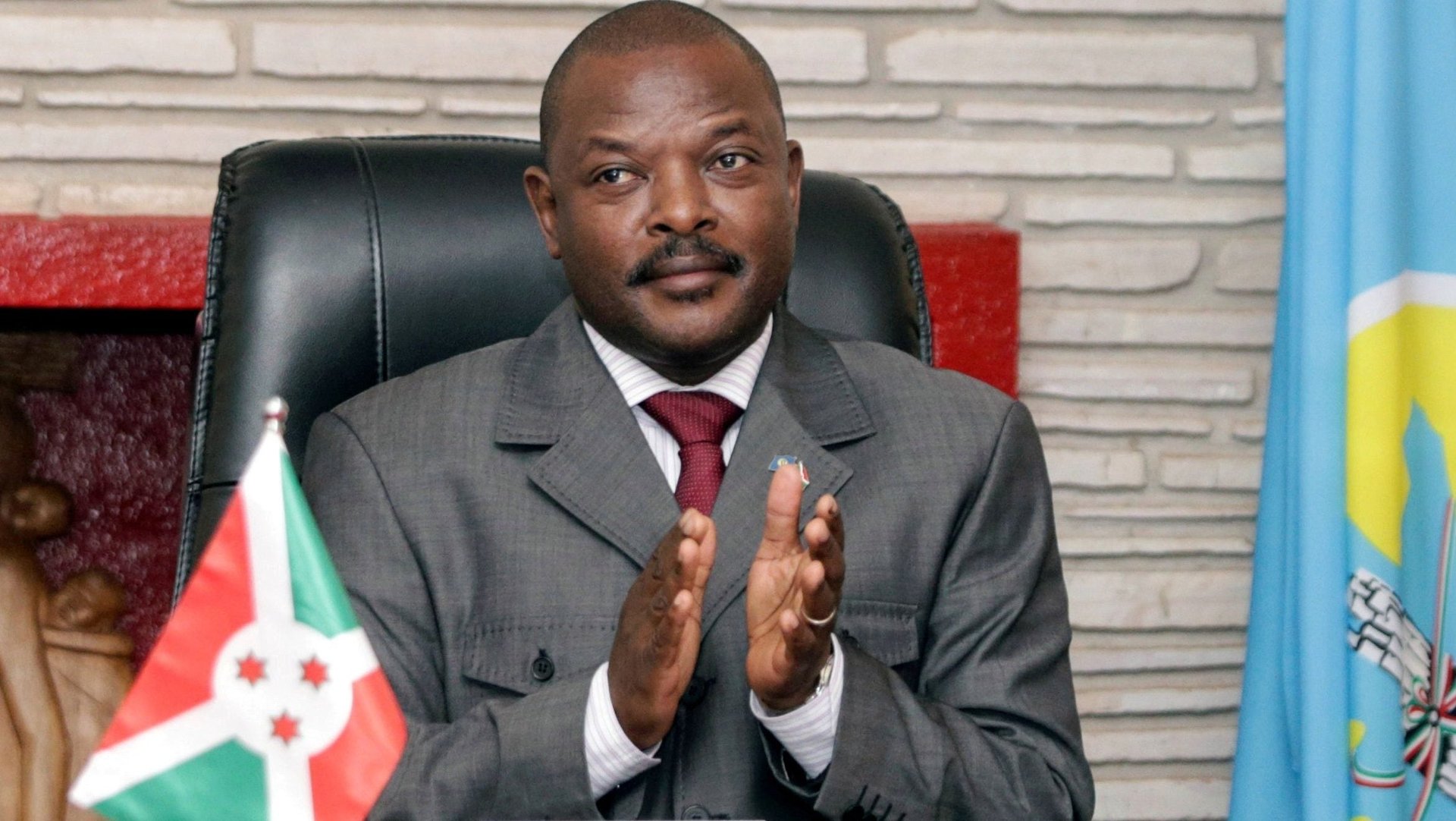After social media ridicule, Burundi has freed three girls who doodled on president’s photo
*Updated to show the three girls have now been released.


*Updated to show the three girls have now been released.
Three school girls arrested for doodling on the face of Burundi’s embattled president, Pierre Nkurunziza in their textbooks have had the case against them dropped.
Although seven students were initially arrested, a regional court gave approval for a full trial of three girls, aged between 15 and 17, and they faced up to five years in prison on charges of insulting the president. But the justice ministry has decided not to pursue the case but warned that future cases would be prosecuted. The three girls have now been released.
Speaking to the state broadcaster, the justice minister Aimée Laurentine Kanyana said: “We call on parents to strengthen the education of their children. We remind children that they have to respect authorities, that the age of criminal responsibility is 15. Next time, the justice will clamp down on such behaviors,” Reuters reports.
However, the announcement comes days after president Nkurunziza became the subject of social media ridicule. Using the #FreeOurGirls hashtag, Twitter users have been campaigning for the release of the school girls by also doodling on photos of president Nkurunziza. They drew colorful wigs, vampire fangs, red noses and twisted mustaches on photos of the president.
Human Rights Watch said the arrest of the girls “showed how thin-skinned” Burundian authorities were and urged them to focus on grave human rights violations instead.
This is not the first time the government has cracked down on school children for simply drawing on the president’s face. In 2016 eight students were arrested by the intelligence agency and in one secondary school, scores were expelled for scribbling on photos of the president.
Critics say Nkurunziza is presiding over an authoritarian regime in Burundi with the muzzling of a free press and viable opposition. In 2015, his decision to extend his tenure in office by running for a third term sparked nationwide protests and a heavy handed crackdown by security forces. Burundi became the first country to cease membership of the International Criminal Court in 2017, and this month, the United Nations human rights office was forced to close its door by the government.
Sign up to the Quartz Africa Weekly Brief here for news and analysis on African business, tech and innovation in your inbox